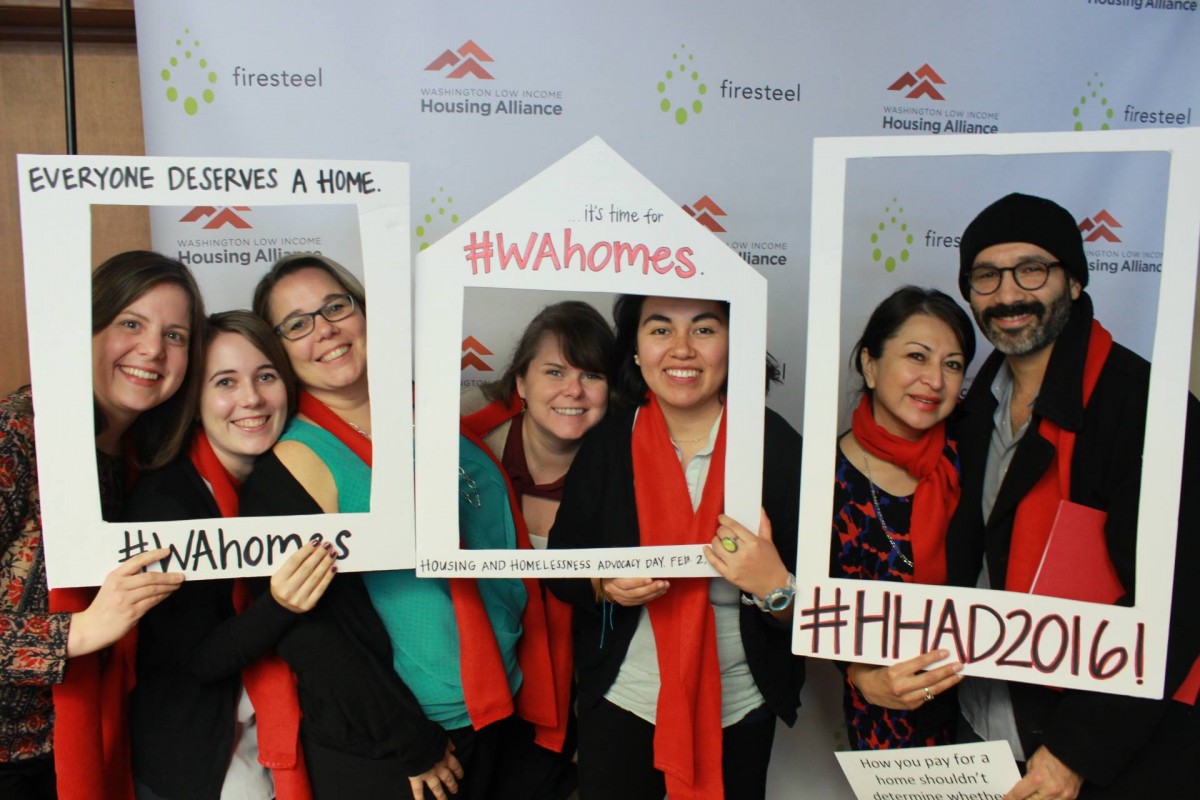Written by Denise Miller, Firesteel Advocacy Manager
“One of the reasons I joined the swim team was because we had morning practices, so it gave me a reason to get to school early, so I could take a shower.”
Poppi Handy spent her childhood without a stable home, and cared for her siblings while her parents abused drugs. School was an escape for Poppi, who did well in the classroom despite many challenges.
Now an architect, Poppi sat down for a StoryCorps “Finding Our Way” conversation with her husband, Brent. You can listen to part of their conversation below.
Poppi was at work when I sent her this edited clip, and she made a quick decision to play it for her colleagues at Third Place Design Cooperative.
“We all bawled,” Poppi told me. “My co-workers were touched that I would share that with them. Not everybody in the office knew about my past, and hearing the story gave them some insight into my motivations for the work I do now.”
Poppi has spent about two decades designing inclusive communities, including YWCA Seattle | King | Snohomish’s Family Village at Issaquah.
“I focus my career on projects that have to do with really enlivening and enhancing the communities in which we live. From providing affordable housing to doing learning centers to shelters, community centers — making things more accessible to all the different people in our society,” she says in the StoryCorps conversation.
Poppi and her colleagues also advocate for public policies that help ensure people have what they need to thrive. One key to successful communities is access to education.
“Education is what got me out of the cycle of poverty, and that’s been an important theme throughout my career,” Poppi told me.
Advocating for students
According to the Office of Superintendent of Public Instruction, 35,511 Washington students – 3.3 percent of the state’s public P-12 population – were counted as homeless during the 2014-15 school year. Housing instability threatens these students’ ability to access education and find a path out of poverty as Poppi did. Only 45.1 percent of Washington’s homeless students graduated in the class of 2013, compared to 78 percent among their housed peers.
Advocates have worked to pass the Homeless Student Stability Act, which will provide support for homeless students and their families, and also help schools better identify students who are experiencing homelessness. The act was approved by both chambers of the state legislature this month. The next step is ensuring that the final state budget keeps the House budget’s $4 million appropriation for the Homeless Student Stability Act. You can help; please message your legislators using the form below.
